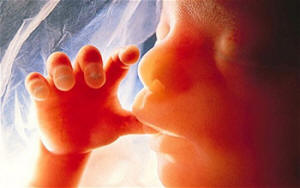Catholic Medical Quarterly Volume 65(2) May 2015
Laudato Si and Healthcare
Pope Francis new encyclical on common care for our Common Home[1] is a very balanced look at the challenges of the world and the environment. While real concern has been expressed that he did not deal strongly enough with the global push towards universal contraception for all and especially for the poor [2], the Holy Father (perhaps more powerfully) reframed the argument towards the excessive consumption of the rich. Here are some excerpts from the encyclical, as it relates to healthcare. When this was discussed at the CMA ethics committee in June, we also reflected on Lord Carters report which stated that the NHS wastes billions on procurement [3]. There is a real need for richer societies to live within the means of the beautiful world which God has created for us, and to live within the means of that world, without wastefully and greedily destroying it.
On Population
Instead of resolving the problems of the poor and thinking of how the world can be different, some can only propose a reduction in the birth rate. At times, developing countries face forms of international pressure which make economic assistance contingent on certain policies of “reproductive health”. Yet “while it is true that an unequal distribution of the population and of available resources creates obs tac les to to development and a sustainable use of the environment, it must nonetheless be recognized that demographic growth is fully compatible with an integral and shared development”. To blame population growth instead of extreme and selective consumerism on the part of some, is one way of refusing to face the issues. It is an attempt to legitimize the present model of distribution, where a minority believes that it has the right to consume in a way which can never be universalized, since the planet could not even contain the waste products of such consumption. Besides, we know that approximately a third of all food produced is discarded, and “whenever food is thrown out it is as if it were stolen from the table of the poor”. Still, attention needs to be paid to imbalances in population density, on both national and global levels, since a rise in consumption would lead to complex regional situations, as a result of the interplay between problems linked to environmental pollution, transport, waste treatment, loss of resources and quality of life. (50)
On Environmental damage
Neglecting to monitor the harm done to nature and the environmental impact of our decisions is only the most striking sign of a disregard for the message contained in the structures of nature itself. When we fail to acknowledge as part of reality the worth of a poor person, a human embryo, a person with disabilities – to offer just a few examples – it becomes difficult to hear the cry of nature itself; everything is connected. Once the human being declares independence from reality and behaves with absolute dominion, the very foundations of our life begin to crumble, for “instead of carrying out his role as a co-operator with God in the work of creation, man sets himself up in place of God and thus ends up provoking a rebellion on the part of nature”(117).
On abortion
 Since everything is interrelated, concern for the protection of nature
is also incompatible with the justification of abortion. How can we
genuinely teach the importance of concern for other vulnerable beings,
however troublesome or inconvenient they may be, if we fail to protect a
human embryo, even when its presence is uncomfortable and creates
difficulties? “If personal and social sensitivity towards the acceptance
of the new life is lost, then other forms of acceptance that are valuable
for society also wither away” (120).
Since everything is interrelated, concern for the protection of nature
is also incompatible with the justification of abortion. How can we
genuinely teach the importance of concern for other vulnerable beings,
however troublesome or inconvenient they may be, if we fail to protect a
human embryo, even when its presence is uncomfortable and creates
difficulties? “If personal and social sensitivity towards the acceptance
of the new life is lost, then other forms of acceptance that are valuable
for society also wither away” (120).
On relativism and the abuse and killing of children and the elderly
The culture of relativism is the same disorder which drives one person to take advantage of another, to treat others as mere objects, imposing forced labour on them or enslaving them to pay their debts. The same kind of thinking leads to the sexual exploitation of children and abandonment of the elderly who no longer serve our interests. It is also the mind-set of those who say: Let us allow the invisible forces of the market to regulate the economy, and consider their impact on society and nature as collateral damage. In the absence of objective truths or sound principles other than the satisfaction of our own desires and immediate needs, what limits can be placed on human trafficking, organized crime, the drug trade, commerce in blood diamonds and the fur of endangered species? Is it not the same relativistic logic which justifies buying the organs of the poor for resale or use in experimentation, or eliminating children because they are not what their parents wanted? This same “use and throw away” logic generates so much waste, because of the disordered desire to consume more than what is really necessary. We should not think that political efforts or the force of law will be sufficient to prevent actions which affect the environment because, when the culture itself is corrupt and objective truth and universally valid principles are no longer upheld, then laws can only be seen as arbitrary impositions or obstacles to be avoided (123).
On embryo experimentation, ethics and the inalienable worth of a human being
 On the other hand, it is troubling that, when some ecological movements
defend the integrity of the environment, rightly demanding that certain
limits be imposed on scientific research, they sometimes fail to apply
those same principles to human life. There is a tendency to justify
transgressing all boundaries when experimentation is carried out on living
human embryos. We forget that the inalienable worth of a human being
transcends his or her degree of development. In the same way, when
technology disregards the great ethical principles, it ends up considering
any practice whatsoever as licit. As we have seen in this chapter, a
technology severed from ethics will not easily be able to limit its own
power (136).
On the other hand, it is troubling that, when some ecological movements
defend the integrity of the environment, rightly demanding that certain
limits be imposed on scientific research, they sometimes fail to apply
those same principles to human life. There is a tendency to justify
transgressing all boundaries when experimentation is carried out on living
human embryos. We forget that the inalienable worth of a human being
transcends his or her degree of development. In the same way, when
technology disregards the great ethical principles, it ends up considering
any practice whatsoever as licit. As we have seen in this chapter, a
technology severed from ethics will not easily be able to limit its own
power (136).
On moral law, mutual enrichment and sexual difference
 Human
ecology also implies another profound reality: the relationship between
human life and the moral law, which is inscribed in our nature and is
necessary for the creation of a more dignified environment. Pope Benedict
XVI spoke of an “ecology of man”, based on the fact that “man too has a
nature that he must respect and that he cannot manipulate at will”. It is
enough to recognize that our body itself establishes us in a direct
relationship with the environment and with other living beings. The
acceptance of our bodies as God’s gift is vital for welcoming and
accepting the entire world as a gift from the Father and our common home,
whereas thinking that we enjoy absolute power over our own bodies turns,
often subtly, into thinking that we enjoy absolute power over creation.
Learning to accept our body, to care for it and to respect its fullest
meaning, is an essential element of any genuine human ecology. Also,
valuing one’s own body in its femininity or masculinity is necessary if I
am going to be able to recognize myself in an encounter with someone who
is different. In this way we can joyfully accept the specific gifts of
another man or woman, the work of God the Creator, and find mutual
enrichment. It is not a healthy attitude which would seek “to cancel out
sexual difference because it no longer knows how to confront it”(155).
Human
ecology also implies another profound reality: the relationship between
human life and the moral law, which is inscribed in our nature and is
necessary for the creation of a more dignified environment. Pope Benedict
XVI spoke of an “ecology of man”, based on the fact that “man too has a
nature that he must respect and that he cannot manipulate at will”. It is
enough to recognize that our body itself establishes us in a direct
relationship with the environment and with other living beings. The
acceptance of our bodies as God’s gift is vital for welcoming and
accepting the entire world as a gift from the Father and our common home,
whereas thinking that we enjoy absolute power over our own bodies turns,
often subtly, into thinking that we enjoy absolute power over creation.
Learning to accept our body, to care for it and to respect its fullest
meaning, is an essential element of any genuine human ecology. Also,
valuing one’s own body in its femininity or masculinity is necessary if I
am going to be able to recognize myself in an encounter with someone who
is different. In this way we can joyfully accept the specific gifts of
another man or woman, the work of God the Creator, and find mutual
enrichment. It is not a healthy attitude which would seek “to cancel out
sexual difference because it no longer knows how to confront it”(155).
References
- Encyclical letter ‘Laudato Si’ of the Holy Father Francis on care
for our common home. Published Vatican, June 2015.
http://w2.vatican.va/content/dam/francesco/pdf/encyclicals/documents/papa-francesco_20150524_enciclica-laudato-si_en.pdf - Voice of the family June 19th 2015. Launch of new encyclical by
head of Catholic agency accused of funding contraception shows urgent need
for reaffirmation of Humanae Vitae.
http://voiceofthefamily.info/wordpress/?p=1190 - Guardian. June 6th 2015. Inefficient hospitals ‘wasting hundreds of
millions of pounds each year’.
http://www.theguardian.com/society/2015/jun/06/nhs-lord-carter-hospitals-wasting-millions-pounds

